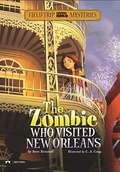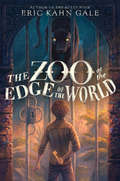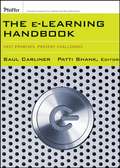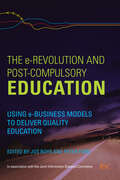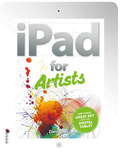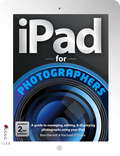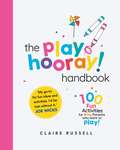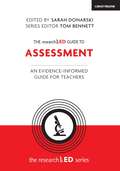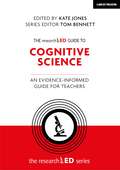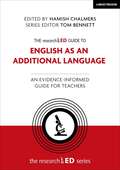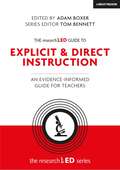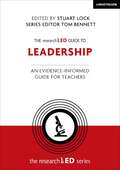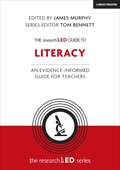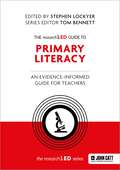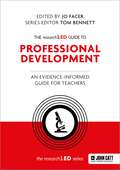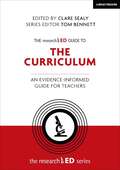- Table View
- List View
The Zombie Who Visited New Orleans (Field Trip Mysteries)
by Steve BrezenoffOn a class trip to New Orleans, Catalina "Cat" Duran and her friends find themselves in the middle of a Voodoo mystery!
The Zoo at the Edge of the World
by Sam Nielson Eric Kahn Gale"A killer jaguar, a zoo on a pyramid, a boy with a stutter who can talk to animals--this powerhouse novel doesn't only tread the line between fantasy, action/adventure, and historical fiction, it dances on that line with wild abandon. Magical, mysterious, fresh, original, and full of heart, Eric Kahn Gale's The Zoo at the Edge of the World will keep you at the edge of your seat."--Peter Lerangis, New York Times bestselling author of The Seven Wonders and The 39 Clues seriesMarlin is not slow, or mute; what he is is a stutterer, and that makes it impossible for him to convince people otherwise. What he is also is a Rackham: the youngest son of the world-famous explorer Roland Rackham, who is the owner and proprietor of the Zoo at the Edge of the World, a resort where the well-to-do from all over the world can come to experience the last bit of the wild left in the world at the end of the nineteenth century.In order to impress a powerful duke who comes to visit the zoo, Marlin's father ventures into the jungle and brings back a mysterious black jaguar, now the only one in captivity. Everyone is terrified of the jaguar, including Marlin--until one night, when the jaguar confers upon him a powerful gift. Soon Marlin finds himself with a difficult choice to make and, finally, something to say. If only he can figure out how to say it.
The construction zone: Working for Cognitive Change in School
by Michael Cole Denis Newman Peg GriffinIn its description of several years of painstaking classroom observations and carefully crafted experimental interventions, the 'construction zone' makes clear the cleavage lines between the everyday requirements of classroom teaching and the practice of experimental psychologists. The best intentions of researchers to improve education are often undermined by such differences. The 'construction zone' is the shared psychological space within which teachers construct environments for their students' intellectual development and students construct deeper understandings of the cultural heritage embodied in the curriculum. The core of the book is a set of analyses of children's developmental changes during classroom lessons and individual tutorials designed to teach basic concepts in such diverse areas as natural science, social studies, and arithmetic. Fusing techniques currently in wide use in microsociology, experimental psychology, and ethnographic studies of the classroom, the authors offer a compelling vision of intellectual development as a process of joint constructive interaction mediated by cultural artifacts. Their approach makes it possible to retain the strength of a developmental perspective which treats intellectual change as a constructive process in the spirit of Piaget, while making it clear that developmental change is simultaneously a social process of cultural transformation as emphasized by Vygotsky and his students.
The e-Learning Handbook: Past Promises, Present Challenges
by Patti Shank Saul CarlinerThe e-Learning Handbook provides a critical reflection on the current state of e-learning with contributions from the world's foremost e-learning experts and best-selling authors from academe and industry, including Margaret Driscoll; Brent Wilson Lee Christopher; William Horton, L. Wayne Precht, Harvey Singh, Jim Everidge, and Jane Bozarth; Pat Brogan; Patrick Parrish; Marc J. Rosenberg and Steve Forman; Pat McGee; Philip C. Abrami, Gretchen Lowerison, Roger Cote, and Marie-Claude Lavoie; Thomas C. Reeves, Jan Herrington, and Ron Oliver; and Patrick Lambe. The book offers a comprehensive and up-to-date assessment of the technological, design, economic, evaluation, research, economic, and philosophical issues underlying e-learning. Each chapter includes a chart that summarizes the key take-away points, contains questions that are useful for guiding discussions, and offers suggestions of related links, books, papers, reports, and articles.
The e-Revolution and Post-Compulsory Education: Using e-Business Models to Deliver Quality Education
by Peter Ford Jos BoysMoving debates about ICT and higher education beyond a simple focus on e-learning, this book takes into consideration the provision of post-secondary education as a whole.Discussing what is meant by e-business, why e-business approaches are relevant to universities and colleges and the key issues this raises for post-secondary education, this book:examines emerging technologies and provides examples of what an e-institution for education might look like explores what can be learnt from e-business in re-defining the relationships between enterprises and their users and in developing processes to improve services and competitive advantage considers how to improve administrative efficiency, implement faster access and response to information, enhance skills and knowledge development and improve the student experience examines technological innovation and integration, leadership styles, risk assessment and cost-benefit type analyses, re-designing existing organisational frameworks, techniques for overcoming barriers to change and successfully implementing change and the types of technologies required for an e-integrated educational provision In a highly competitive educational marketplace, institutions need to react to and embrace new technologies to provide rich and competitive learning environments for the students of tomorrow. The discussion and guidance in this book is essential reading for all leaders, managers and heads of e-learning in higher and further education.
The iPad for Artists: How to Make Great Art with the Digital Tablet
by Dani JonesEnabling new and exisiting iPad users to develop and stretch their artistry in the digital age.
The iPad for Photographers: A Guide To Managing, Editing And Displaying Photographs Using Your Ipad
by Ben HarvellThink the little LCD on the back of your camera is useful? You haven't seen anything yet. This book will show you how to put photography's new essential piece of kit at the centre of your workflow, enabling you to bridge the gap between the camera and the internet by importing and uploading photos to the cloud, edit images on the road with the latest and most powerful apps, and organise and design your portfolio in a sleek and stylish package that will impress clients and present your work at its best. Novice or pro, the photographic uses of your iPad are endless, and this guide gives you everything you need to take full advantage of this powerful tool's capabilities. Fully updated for the latest apps, retina screen, iPad mini, and iOS 6. Catch up or get left behind - fluency with an iPad is now an industry standard. A must-read for iPad-owning digital photographers everywhere.
The playHOORAY! Handbook: 100 Fun Activities for Busy Parents and Little Kids Who Want to Play
by Claire Russell'My go-to for fun ideas and activities with Marley and Indie. I'd be lost without it.' JOE WICKS Mum-of-two and founder of the playHOORAY community Claire Russell has helped thousands of families during lockdown discover the joy of play. Her first book The playHOORAY! Handbook is a lifesaver for busy parents juggling work and childcare looking for fun ideas for activities, crafts & games to entertain little kids.With 100 activities using items from around the house, you'll find everything you need to entertain babies, toddlers and younger school-age children. From £1 play, sibling play to no-guilt screentime, this is the perfect book for all the family. And best of all, you'll be learning valuable skills whilst having fun!
The playHOORAY! Handbook: 100 Fun Activities for Busy Parents and Little Kids Who Want to Play
by Claire RussellLooking for ways to entertain little kids this Summer? Mum and parenting play coach Claire Russell is here to help with The PlayHOORAY! Handbook - a lifesaver for busy parents. The book is packed with 100 ideas for activities, arts, crafts and games using items from the house and garden. Covering everything from Preparing for School, Garden Play and Sibling Play, this book offers a helping hand to parents and carers on the days you need it. Find the playHOORAY! community on social media for daily inspiration and L!VE play demonstrations from Claire's kitchen where viewing with a cup of tea is compulsory.
The researchED Guide to Assessment: An evidence-informed guide for teachers (researchED)
by Tom Bennett Sarah DonarskiA teacher's job is to create an environment where our students' engagement in learning proceeds towards an intended direction. In order for this to occur, we must form a bridge between the teaching of material in the classroom and how the learning of that information is being processed and manipulated by our students. The only way we can do this effectively is through the process of assessment. Recent theoretical history on how to effectively establish and implement assessment strategies into policy has caused much confusion; it is high time to consider how assessment, marking and feedback have changed over the years so that conversations about how best to move forward can begin. In this researchED Guide to Assessment, Sarah Donarski brings together chapters by Dylan Wiliam, Tom Sherrington, Alison Peacock and many others to consider the debates, critique the strategies and find solutions that not only better the progress of pupils but also assist the wellbeing and manageability of workload for staff.
The researchED Guide to Assessment: An evidence-informed guide for teachers (researchED)
by Tom Bennett Sarah DonarskiA teacher's job is to create an environment where our students' engagement in learning proceeds towards an intended direction. In order for this to occur, we must form a bridge between the teaching of material in the classroom and how the learning of that information is being processed and manipulated by our students. The only way we can do this effectively is through the process of assessment. Recent theoretical history on how to effectively establish and implement assessment strategies into policy has caused much confusion; it is high time to consider how assessment, marking and feedback have changed over the years so that conversations about how best to move forward can begin. In this researchED Guide to Assessment, Sarah Donarski brings together chapters by Dylan Wiliam, Tom Sherrington, Alison Peacock and many others to consider the debates, critique the strategies and find solutions that not only better the progress of pupils but also assist the wellbeing and manageability of workload for staff.
The researchED Guide to Cognitive Science: An evidence-informed guide for teachers
by Kate JonesresearchED is an educator-led organisation with the goal of bridging the gap between research and practice. This accessible and punchy series, overseen by founder Tom Bennett, tackles the most important topics in education, with a range of experienced contributors exploring the latest evidence and research and how it can apply in a variety of classroom settings. In this edition, Kate Jones considers various principles from cognitive science that can be used to enhance teaching and learning, including cognitive load theory, dual coding theory, interleaving, retrieval practice and spaced practice. Kate has sourced contributions from teachers and researchers including Jade Pearce, Sarah Cottingham, Adam Boxer, Jonathan Firth, Paul A. Kirschner, Pedro De Bruyckere and Lekha Sharma. Kate Jones is a teacher and an experienced leader. She is the author of seven books and is senior associate for teaching and learning at Evidence Based Education.
The researchED Guide to Cognitive Science: An evidence-informed guide for teachers
by Kate JonesresearchED is an educator-led organisation with the goal of bridging the gap between research and practice. This accessible and punchy series, overseen by founder Tom Bennett, tackles the most important topics in education, with a range of experienced contributors exploring the latest evidence and research and how it can apply in a variety of classroom settings. In this edition, Kate Jones considers various principles from cognitive science that can be used to enhance teaching and learning, including cognitive load theory, dual coding theory, interleaving, retrieval practice and spaced practice. Kate has sourced contributions from teachers and researchers including Jade Pearce, Sarah Cottingham, Adam Boxer, Jonathan Firth, Paul A. Kirschner, Pedro De Bruyckere and Lekha Sharma. Kate Jones is a teacher and an experienced leader. She is the author of seven books and is senior associate for teaching and learning at Evidence Based Education.
The researchED Guide to English as an Additional Language: An evidence-informed guide for teachers (researchED)
by Tom Bennett Hamish ChalmersIn this edition, Hamish Chalmers provides a primer on the key questions teachers and researchers have about the education of children learning English as an Additional Language (EAL). From the general implications of teaching children in a language that many are still in the process of learning, to the specifics of EAL-friendly pedagogy, this volume includes contributions from both teachers and researchers in the field: Victoria Murphy, Constant Leung, Jonathan Bifield, Feyisa Demie, Ann-Margaret Smith, Naomi Flynn, Holly Joseph, Tracey Costley, Xiao Lan Curdt-Christiansen, and Eowyn Crisfield.Hamish Chalmers is a lecturer and EAL researcher at the University of Oxford, vice-chair of NALDIC — the UK’s EAL subject association — and erstwhile primary school teacher, both in the UK and overseas.
The researchED Guide to English as an Additional Language: An evidence-informed guide for teachers (researchED)
by Tom Bennett Hamish ChalmersIn this edition, Hamish Chalmers provides a primer on the key questions teachers and researchers have about the education of children learning English as an Additional Language (EAL). From the general implications of teaching children in a language that many are still in the process of learning, to the specifics of EAL-friendly pedagogy, this volume includes contributions from both teachers and researchers in the field: Victoria Murphy, Constant Leung, Jonathan Bifield, Feyisa Demie, Ann-Margaret Smith, Naomi Flynn, Holly Joseph, Tracey Costley, Xiao Lan Curdt-Christiansen, and Eowyn Crisfield.Hamish Chalmers is a lecturer and EAL researcher at the University of Oxford, vice-chair of NALDIC — the UK’s EAL subject association — and erstwhile primary school teacher, both in the UK and overseas.
The researchED Guide to Explicit and Direct Instruction: An evidence-informed guide for teachers
by Tom Bennett Adam BoxerresearchED is an educator-led organisation with the goal of bridging the gap between research and practice. This accessible and punchy series, overseen by founder Tom Bennett, tackles the most important topics in education, with a range of experienced contributors exploring the latest evidence and research and how it can apply in a variety of classroom settings. In this edition, Adam Boxer examines Direct Instruction, editing contributions from writers including: Kris Boulton; Greg Ashman; Gethyn Jones; Tom Needham; Lia Martin; Amy Coombe; Naveen Rivzi; John Blake; Sarah Barker; and Sarah Cullen.
The researchED Guide to Explicit and Direct Instruction: An evidence-informed guide for teachers
by Tom Bennett Adam BoxerresearchED is an educator-led organisation with the goal of bridging the gap between research and practice. This accessible and punchy series, overseen by founder Tom Bennett, tackles the most important topics in education, with a range of experienced contributors exploring the latest evidence and research and how it can apply in a variety of classroom settings. In this edition, Adam Boxer examines Direct Instruction, editing contributions from writers including: Kris Boulton; Greg Ashman; Gethyn Jones; Tom Needham; Lia Martin; Amy Coombe; Naveen Rivzi; John Blake; Sarah Barker; and Sarah Cullen.
The researchED Guide to Leadership: An evidence-informed guide for teachers (researchED)
by Stuart LockresearchED is an educator-led organisation with the goal of bridging the gap between research and practice. This accessible and punchy series, overseen by founder Tom Bennett, tackles the most important topics in education, with a range of experienced contributors exploring the latest evidence and research and how it can apply in a variety of classroom settings.Claiming that the leadership industry has failed to have the impact on schools that is required, this book takes a fresh view that domain-specific knowledge and expertise is vital to running schools well and argues that we tend to underestimate the knowledge required to do this complex job efficiently. In the researchED guide to leadership, Stuart Lock brings together chapters by experts including Dylan Wiliam, Jen Barker, Danielle Dennis, Jon Hutchinson and The Reading Ape to unpick the challenges of school leadership, combining a thorough trawl of the research and mixing in practical advice to exemplify a very different approach to leading schools – one that is rooted in developing the required knowledge to address the challenges that are common to our schools.
The researchED Guide to Leadership: An evidence-informed guide for teachers (researchED)
by Stuart LockresearchED is an educator-led organisation with the goal of bridging the gap between research and practice. This accessible and punchy series, overseen by founder Tom Bennett, tackles the most important topics in education, with a range of experienced contributors exploring the latest evidence and research and how it can apply in a variety of classroom settings.Claiming that the leadership industry has failed to have the impact on schools that is required, this book takes a fresh view that domain-specific knowledge and expertise is vital to running schools well and argues that we tend to underestimate the knowledge required to do this complex job efficiently. In the researchED guide to leadership, Stuart Lock brings together chapters by experts including Dylan Wiliam, Jen Barker, Danielle Dennis, Jon Hutchinson and The Reading Ape to unpick the challenges of school leadership, combining a thorough trawl of the research and mixing in practical advice to exemplify a very different approach to leading schools – one that is rooted in developing the required knowledge to address the challenges that are common to our schools.
The researchED Guide to Literacy: An evidence-informed guide for teachers (researchED)
by James Murphy Tom BennettresearchED is an educator-led organisation with the goal of bridging the gap between research and practice. This accessible and punchy series, overseen by founder Tom Bennett, tackles the most important topics in education, with a range of experienced contributors exploring the latest evidence and research and how it can apply in a variety of classroom settings.In this edition, James Murphy examines the latest evidence surrounding student literacy, editing contributions from a wide range of writers.
The researchED Guide to Primary Literacy: An evidence-informed guide for teachers
by Stephen LockyerresearchED is an educator-led organisation with the goal of bridging the gap between research and practice. This accessible and punchy series, overseen by founder Tom Bennett, tackles the most important topics in education, with a range of experienced contributors exploring the latest evidence and research and how it can apply in a variety of classroom settings.Literacy is one of the most powerful and transformative learning tools: making changes and improvements in Literacy will have a direct impact on your work, your learning and your aspirations across all subjects in the curriculum.In this book, Stephen Lockyer brings together contributions from expert writers, including Clare Sealy, Emma Stokes, Neil Almond and Andrew Percival, to show how making tiny, incremental changes with consistency and genuine purpose can have a big effect on your students, their literacy, and their learning. Each chapter has an abundance of ideas to take into your classroom and have a direct impact on the pupils.
The researchED Guide to Primary Literacy: An evidence-informed guide for teachers
by Stephen LockyerresearchED is an educator-led organisation with the goal of bridging the gap between research and practice. This accessible and punchy series, overseen by founder Tom Bennett, tackles the most important topics in education, with a range of experienced contributors exploring the latest evidence and research and how it can apply in a variety of classroom settings.Literacy is one of the most powerful and transformative learning tools: making changes and improvements in Literacy will have a direct impact on your work, your learning and your aspirations across all subjects in the curriculum.In this book, Stephen Lockyer brings together contributions from expert writers, including Clare Sealy, Emma Stokes, Neil Almond and Andrew Percival, to show how making tiny, incremental changes with consistency and genuine purpose can have a big effect on your students, their literacy, and their learning. Each chapter has an abundance of ideas to take into your classroom and have a direct impact on the pupils.
The researchED Guide to Professional Development: An evidence-informed guide for teachers
by Jo FacerresearchED is an educator-led organisation with the goal of bridging the gap between research and practice. This accessible and punchy series, overseen by founder Tom Bennett, tackles the most important topics in education, with a range of experienced contributors exploring the latest evidence and research and how it can apply in a variety of classroom settings.While there are many routes to growing great schools, investing in the quality of the teachers is one of the best bets to improve both pupils' educational outcomes and their experience of school. And, crucially, teacher quality is not fixed - all teachers can always improve. Professional development is not solely about the teaching techniques we use in the classroom, but encompasses the way we learn to think about the curriculum, how we manage behaviour, and even how we behave as leaders.In this book, Jo Facer brings together contributions from expert writers including Elisabeth Bowling, Nimish Lad, Reuben Moore and Jenny Thompson, to consider what we might learn from cutting-edge research, and how we might apply this to the messy, on-the-ground reality of schools today.
The researchED Guide to Professional Development: An evidence-informed guide for teachers
by Jo FacerresearchED is an educator-led organisation with the goal of bridging the gap between research and practice. This accessible and punchy series, overseen by founder Tom Bennett, tackles the most important topics in education, with a range of experienced contributors exploring the latest evidence and research and how it can apply in a variety of classroom settings.While there are many routes to growing great schools, investing in the quality of the teachers is one of the best bets to improve both pupils' educational outcomes and their experience of school. And, crucially, teacher quality is not fixed - all teachers can always improve. Professional development is not solely about the teaching techniques we use in the classroom, but encompasses the way we learn to think about the curriculum, how we manage behaviour, and even how we behave as leaders.In this book, Jo Facer brings together contributions from expert writers including Elisabeth Bowling, Nimish Lad, Reuben Moore and Jenny Thompson, to consider what we might learn from cutting-edge research, and how we might apply this to the messy, on-the-ground reality of schools today.
The researchED Guide to The Curriculum: An evidence-informed guide for teachers (researchED)
by Clare SealyresearchED is an educator-led organisation with the goal of bridging the gap between research and practice. This accessible and punchy series, overseen by founder Tom Bennett, tackles the most important topics in education, with a range of experienced contributors exploring the latest evidence and research and how it can apply in a variety of classroom settings.In this edition, Adam Boxer Clare Sealy explores how schools can get the most out of a rich curriculum, editing contributions from a wide range of writers.
